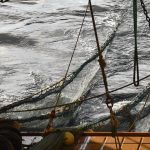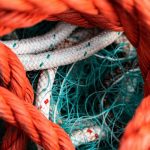The fish examiner’s training course was attended by Municipal agriculturists, fishery technicians, foresters, legal officers, local police and Crime Laboratory personnel and staff of the Bureau of Fisheries and Aquatic Resources (Bfar) from Cebu, Bohol, Leyte, Southern Leyte, Surigao del Norte and Camiguin. They have successfully completed the12 days of intensive training at the Institute for Religion and Culture (IRC) in Cebu City.
It is told that the fish examiners are the equivalent to the Scene of the Crime Operatives in the fishery sector. The main job of the fish examiner is to assist fishery law enforcement officers and the police determine through scientific examinations whether the fish being investigated are caught by means of explosives or not.
BFAR informed that the training includes fish taxonomy, anatomy, internal organ, morphology, circulatory system, systematics, fish grading, Fisheries Code, rules of evidence, fish market systems, trading and culture and basic investigation skills. Andres Menguito, National Chief of the Bfar Monitoring, Control and Surveillance Section and lead trainer, said the duration of the course usually spans 30-days but with modern techniques in pedagogy, adult learning and other participatory teaching methods in fish biology, the subjects can be taught in 12 days as long as the participants are carefully screened.
Police Officer Roderick Francia, one of the resource speakers in the training, explained that the job of a fish examiner can be dangerous because they join police operations when boarding maritime vessels; when conducting check points and market denial operations in fish landings and seaports.








